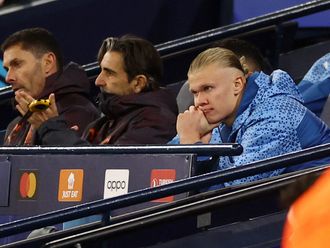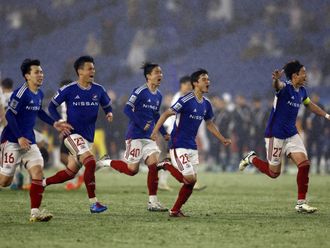At the elite level of football now, rotation is one of the watchwords that all of the big clubs live by.
If you want to be successful both domestically and in Europe, then a decent squad, and by that I mean two high-quality exponents per position, is a must.
Yet we often find that the necessity of rotating players to either aid comebacks from injury, give certain others a rest etc, is to the detriment of the team as a whole.
For instance, take Barcelona and Real Madrid.
This past week, Zinedine Zidane changed seven players for the visit of Villarreal to the Santiago Bernabeu from those that started the game against Espanyol.
The result was a disjointed performance and one in which they were lucky to escape with a 1-1 draw. In any event, the Yellow Submarine had stopped Los Blancos’s run of 16 consecutive La Liga victories.
Had Real taken all three points from that game, they would’ve set a new all-time mark and beaten Pep Guardiola’s Barcelona vintage.
On Saturday, Zidane again tinkered with the squad and for the first time in his Real Madrid career, Cristiano Ronaldo was substituted for tactical reasons.
Now clearly the Portuguese is still not at 100 per cent fitness wise and the Frenchman is therefore well within his rights to ensure best practice for all of his players, but more rotation again cost Los Blancos as they could only manage another draw, this time against Las Palmas.
Luis Enrique also decided on changing seven players when new boys Alaves came to the Camp Nou a couple of weeks back. What happened? The Catalans were stunned and lost a perfectly winnable game 2-1.
Both Enrique and Zidane will ask that the bigger picture is reviewed before judgement is passed, and in fairness they and others in their position need to be allowed some degree of latitude.
However, when it’s clear that such large-scale rotation doesn’t work, it’s folly to insist upon the same.
Professional players are savvy enough in this day and age to know if there’s enough gas left in the tank to be able to provide an acceptable level of play, and will surely advise their coaching and medical staff accordingly.
Furthermore, the advances of sport science and the amount of staff employed to oversee the same give the managerial team the clearest of indicators as to a players well-being.
No one is suggesting that the odd change here and there isn’t right because formations and tactics dictate the same, whether Ronaldo likes it or not.
But rotation for rotations sake hasn’t worked in the past, nor is it likely to in the future. If it ain’t broke, don’t go overboard in trying to fix it.
— The author is an expert on Spanish football












